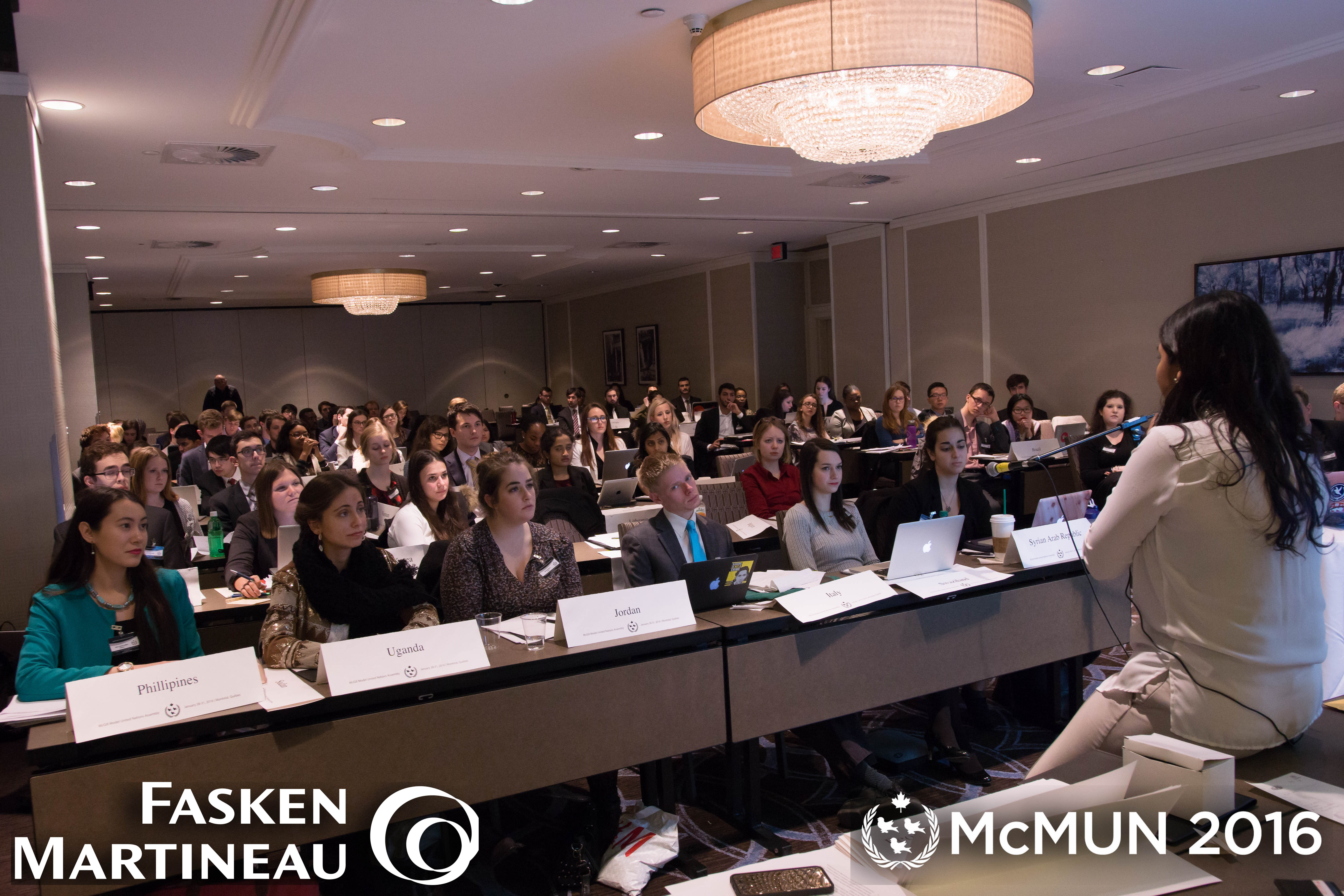UN committee works to eradicate sexual abuse by Peacekeepers

The highly publicized failure of the 1993 United Nations Assistance Mission for Rwanda is an enduring stain on the reputation of the United Nations, often referenced by those who regard peacekeeping missions as inefficient and futile. Indeed, the effectiveness of such initiatives is a polarizing discussion that deserves consideration.
Today, McMUN’s S pecial Committee on Peacekeeping Operations of the United Nations brought forth two working papers that respectively address peacekeeper sexual abuse, a morally repugnant subject that highlights the irreversible harm these missions may inflict on an incredibly vulnerable portion of the population. The first working paper, titled Transparency in Peacekeeping Practices (TPP), takes a categorical approach in suggesting the implementation of new mission roles, such as field counsellors and “Chief Moral Officers” (CMO). Field counsellors would primarily interact with local populations by helping to reintegrate victims of sexual abuse and by educating local populations on issues such as gender equality, rape, cultural sensitivity, and abuse. Correspondingly, CMOs would act as role models within peacekeeping units and conduct monthly evaluations of peacekeepers in their units.
pecial Committee on Peacekeeping Operations of the United Nations brought forth two working papers that respectively address peacekeeper sexual abuse, a morally repugnant subject that highlights the irreversible harm these missions may inflict on an incredibly vulnerable portion of the population. The first working paper, titled Transparency in Peacekeeping Practices (TPP), takes a categorical approach in suggesting the implementation of new mission roles, such as field counsellors and “Chief Moral Officers” (CMO). Field counsellors would primarily interact with local populations by helping to reintegrate victims of sexual abuse and by educating local populations on issues such as gender equality, rape, cultural sensitivity, and abuse. Correspondingly, CMOs would act as role models within peacekeeping units and conduct monthly evaluations of peacekeepers in their units.
The second paper, CODE RED, put particular emphasis on standardizing and tightening peacekeeper training and included one clause that outlined a standardized training program across all nations and languages, as well as a system of unified definitions to be utilized by troops on issues such as the legality of prostitution and sexual consent. There were several areas of consensus between the papers, such as the need to diversify peacekeeping personnel by increasing the number of female troops as well as the importance of properly vetting peacekeepers before they are deployed.
A particularly controversial topic was both papers’ inclusion of clauses that permits the use of the International Criminal Court (ICC) to try peacekeepers accused of sexual abuse. Indeed, delegates raised several legitimate concerns about the enactment of this policy. Firstly, it seemed difficult to ascertain whether or not peacekeeper sexual assault falls under ICC jurisdiction, as it is generally used to prosecute those accused of war crimes, genocide and crimes against humanity. Secondly, the Rome Statute of the International Criminal Court was not ratified by 7 countries, which include China, the United States, Yemen, Israel and Qatar; all of whom are sponsors of the respective papers. It would seem unlikely that these countries would back legislation advocating for an organization that does not have their full support. On the other hand, some states may lack the infrastructure needed to adequately prosecute abusive peacekeepers, in which case the ICC may appear the best option.
Additional concerns voiced by delegates included issues surrounding the maintenance of sovereignty, cultural friction, funding and the questionable efficiency of UN bureaucratic institutions. For examples, TPP’s CMOs are expected to serve as a “moral compass” for their fellow troops; but with the involvement of several countries, disparate ideas about what constitutes moral behaviour are bound to emerge. It is difficult to argue that a state has full control over their peacekeepers when their conduct is subject to another country’s approval. CODE RED’s plan to increase opportunities for abuse victims to speak out by implementing mentorship programs may work in regions where sexual assault carries little stigma, which is not true in most cases.
This is not to say that the papers did not take these issues into consideration. Both proposals offered extensive legislation on the necessity of working with local organizations to ensure that local authorities have ample influence in the execution of UN policies. The papers included a section suggesting weekly meetings between UN officials and community leaders to achieve regular communication and feedback.
Peacekeeper sexual abuse is a difficult problem to tackle because of the prevalence of deep cultural divisions in areas of gender equality and violence towards women across the globe, yet the delegates did a commendable job overall in drafting resolutions and I am excited to see what kind of legislation they will pass.
Photo credits to McMUN/Philip Nguyen-Powanda
